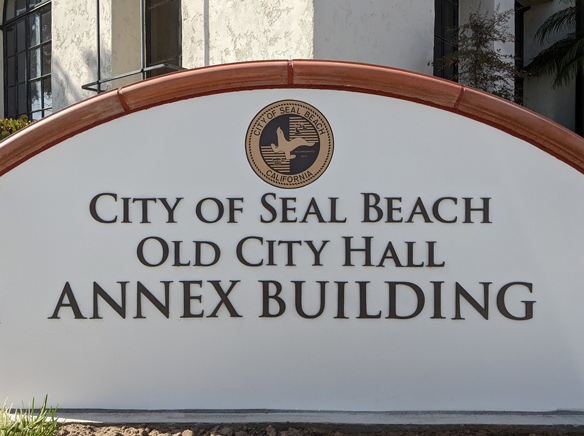A local coastal plan, once approved, transfers some of the authority from the California Coastal Commission to local government.
Seal Beach’s efforts to get an approved LCP ranks among the oldest projects in the city.
The City Council on March 27 unanimously approved a two-year extension to the contract between Seal Beach and Michael Baker International to draft a local coastal plan.
This was originally a Consent Calendar item. However, District Three Councilwoman Lisa Landau pulled it for separate consideration.
Smittle explained that a Local Coastal Plan will allow Seal Beach to administer the Coastal Act in most circumstances in the coastal zone. According to Smittle, the Coastal Zone is south of Westminster Boulevard.
Smittle said the LCP has two primary elements: the land use plan and the implementation plan.
She said staff was about to send the land use plan to Coastal Commission staff for their second review of the document. Smittle said the CCC had received the document more than a year-and-a-half ago and provided feedback. Smittle said Seal Beach staff is putting together the implementation plan.
She said the city did receive a $50,000 grant to support the Local Coastal Plan project.
Landau asked if there was any public input on the land use part of the LCP that was submitted more than a year ago.
The project predates Smittle’s time with the city, so she was unable to give an exact answer to that question. Smittle said that this time around, when the city sends the document to the Coastal Commission, it would be available for public review. Smittle believed that that was the case last time.
Landau asked if the Environmental Quality Control Board and Planning Commission would have input as well.
“Not at this time,” Smittle said. “We need to get further down the process to get to the implementation element, and then the whole package will start moving it forward.”
In response to another question, Smittle said Michael Baker International believed they could complete the work at the price that was quoted.
“What is the benefit for this Local Coastal Plan?” Landau said.
She also asked if there was a downside.
“That’s a big question,” Smittle said. “The short answer is: the benefit is for development projects within this city, as long as they fall within the realm of our coastal plan, we are able to determine whether or not they can move forward under the Coastal Act.”
For example, Smittle said if someone wanted to demolish their home and build a new home, right now they start with the city’s Planning Division, and then they need to apply for that same project with the Coastal Commission, before they can come back to the city to start building permits and those types of things.
“So, in most cases, if we have a Local Coastal Plan, it will eliminate that step with the outside agency because we will be administering the Coastal Act here, in-house,” Smittle said.
“That’s absolutely a benefit to our applicants because the Coastal Commission can take a long time,” Smittle said.
“They can be challenging to work with,” Smittle said.
Smittle pointed out that the commission holds only one meeting a month. (According to the Coastal Commission website, the April meeting will be held on April 12, 13, and 14. Two Seal Beach items are currently on the April 12 agenda.)
“At the same time, it’s absolutely more work for staff and sometimes these things can be complicated,” Smittle said. She said the city will have to say no to certain things or add conditions that the community doesn’t necessarily love or want to have.
There were no questions from other council members.
Approving the contract extension will not cost the city additional money, according to the staff report by Community Development Director Smittle. She told the council that Michael Baker International had agreed to a no-cost two-year extension.
“On February 22, 2021, the City Council approved a Professional Services Agreement with Michael Baker International to draft a Local Coastal Plan,” Smittle wrote.
“Unfortunately, due to multiple competing demands and limited staffing at the City, this has not yet come to fruition, though progress has been made,” Smittle wrote.
“Staff recommends extending the existing contract by two years, allowing sufficient time to complete the scope of work. This amendment extends the time period only; no additional funding is being requested at this time,” Smittle wrote.
According to a 2016 staff report to the council, Seal Beach submitted local coastal plans to the Coastal Commission in 1983 and 2003.




